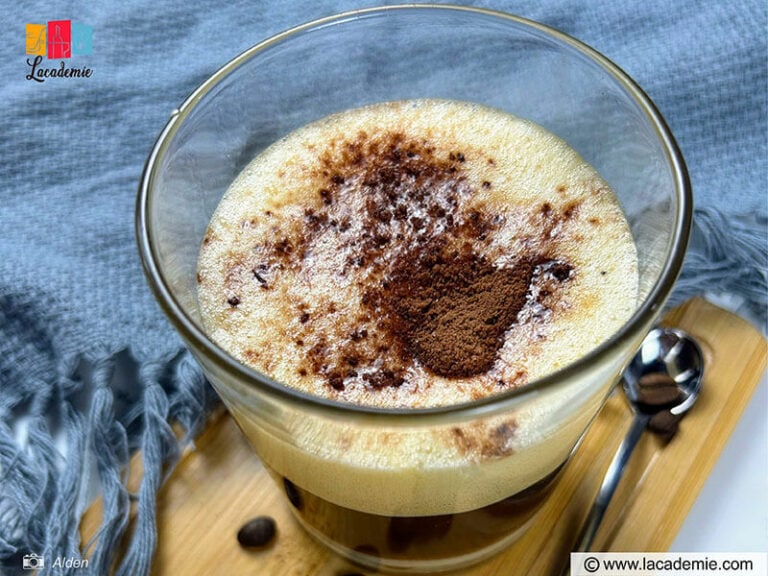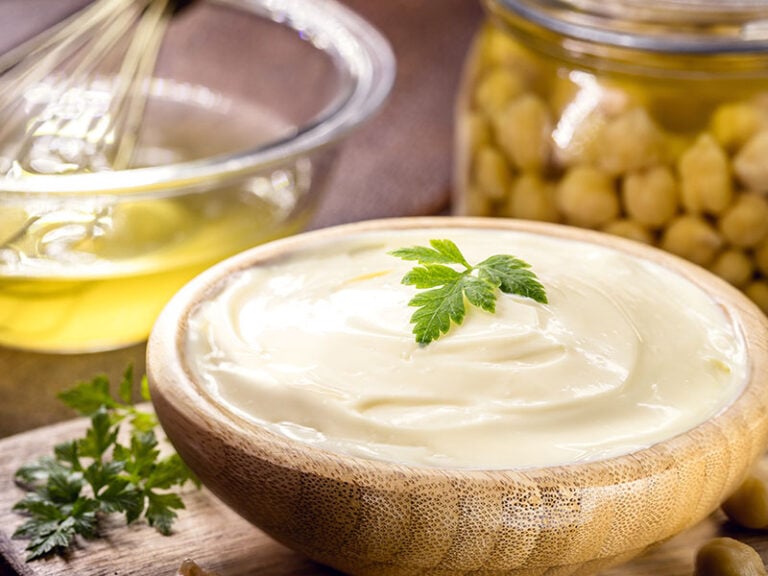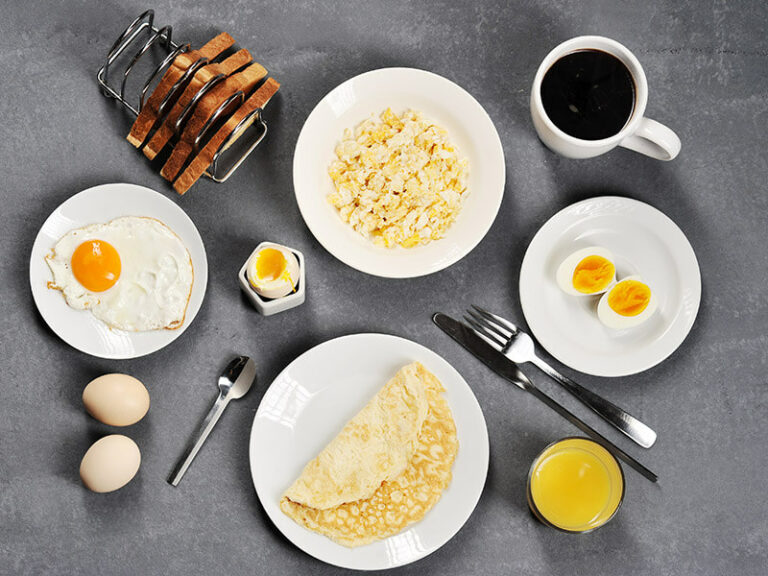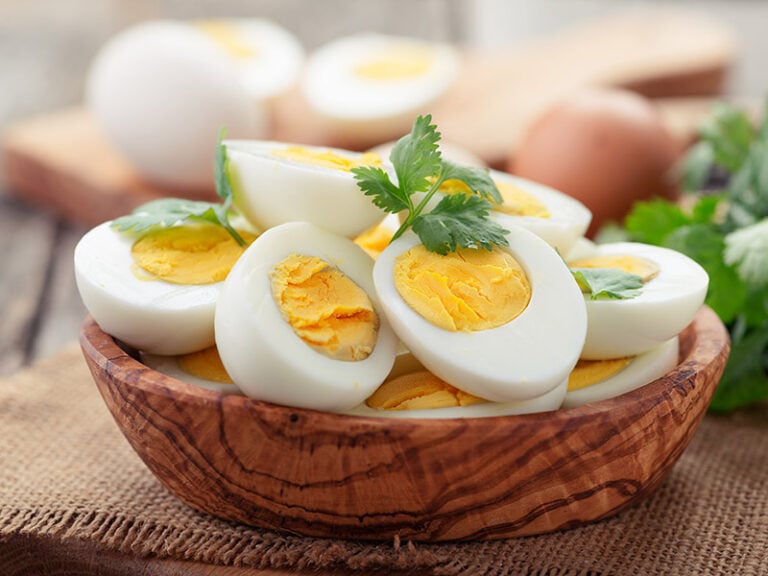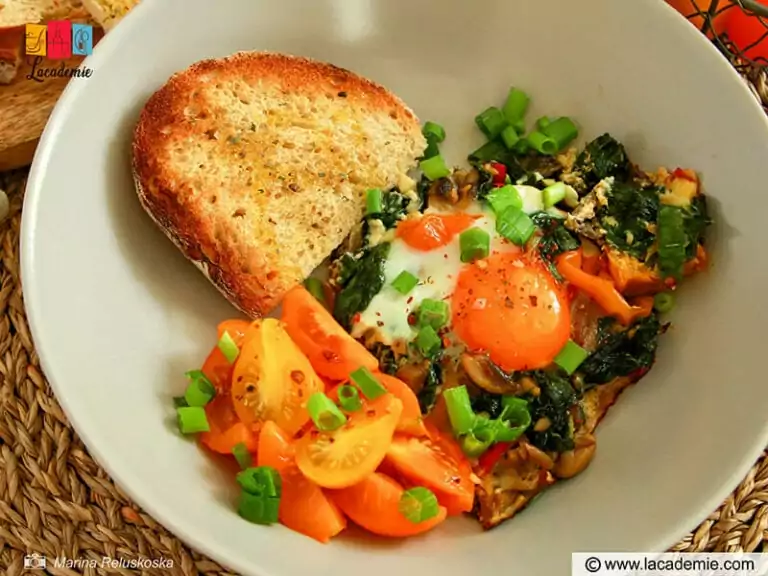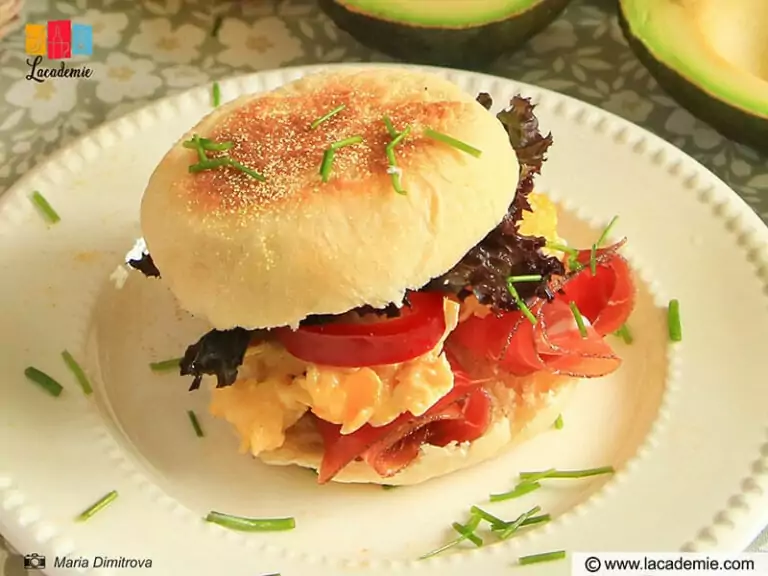Are you wondering how long pickled eggs last? How long can they be kept fresh and safe for consumption? Pickled eggs are a great snack. If you are a fan of sweet, sour, and tangy flavors, you will enjoy this treat as much as I do.
Pickled eggs are quite simple to make, too. Perhaps, you have made them before. Or one of your friends has made them and given you some. How long did you let them sit in your fridge? And can you tell if they are no longer good?
This article will address these questions and provide helpful information about processing and preserving pickled eggs properly so that you can keep them longer and fresher. So, keep on reading and finding out the answers!
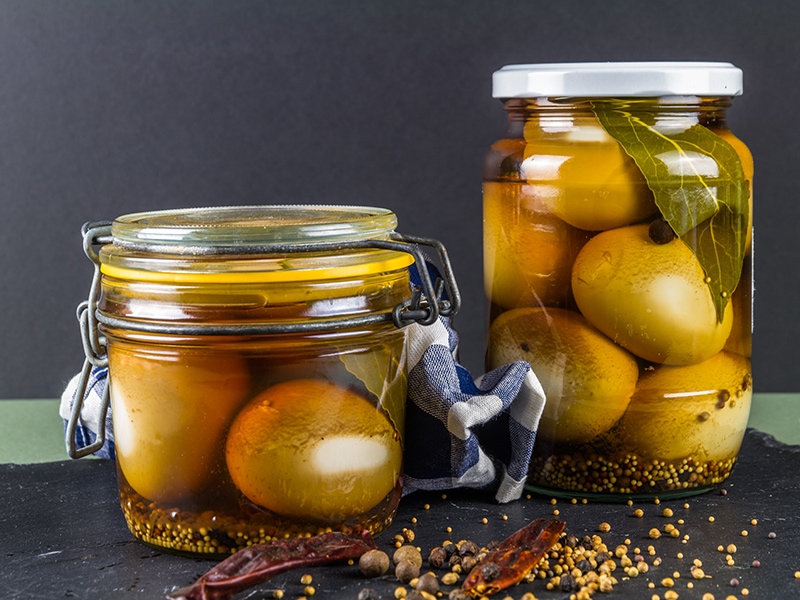
Can Pickled Eggs Get Spoiled?
Pickled eggs are basically kinds of cooked egg. In detail, they are hard-boiled eggs submerged in vinegar or sometimes salty brine or alcohol pickling solution. Salt, a bit of sugar, and pickling spices are normally added to the pickling liquid. Vinegar and salt act as preservatives for pickled eggs.
Since the pickled eggs are protected and preserved in vinegar or salty brine, they can last for a relatively long time in proper storage conditions. However, they are not going to last forever! When they are kept for too long, they will go bad.
Spoiled pickled eggs are typically harmful to your health, so only consume them within their shelf life. Once they have gone bad, don’t feel sorry to throw them away.
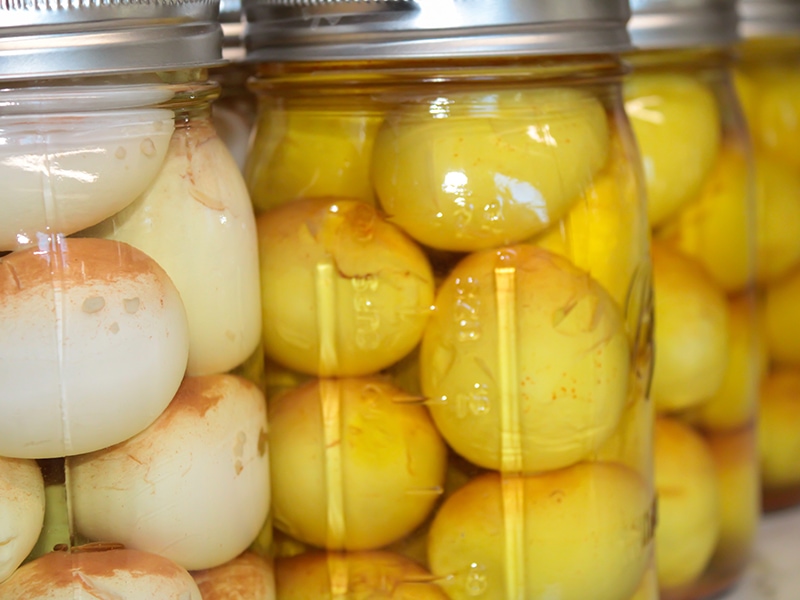
How Long Do Pickled Eggs Last?
Different kinds of pickled eggs may have different lasting durations. Their shelf life depends on what kind of eggs they are, how they are made, and how to preserve them. So, keep on reading to learn all about them!
How Long Do Homemade Pickled Eggs Last?
Once you make the pickled eggs, have them in a glass jar or a container, and cover them well with a lid; they should be stored in the fridge. Let it sit in the fridge for some time until the seasonings are absorbed into it.
Pickled eggs should not be stored at temperatures above 40 degrees Fahrenheit. At this high temperature, pickled eggs may be bacteria contaminated. Therefore, it is recommended that the best temperature for their storage is 34 degrees Fahrenheit or below.
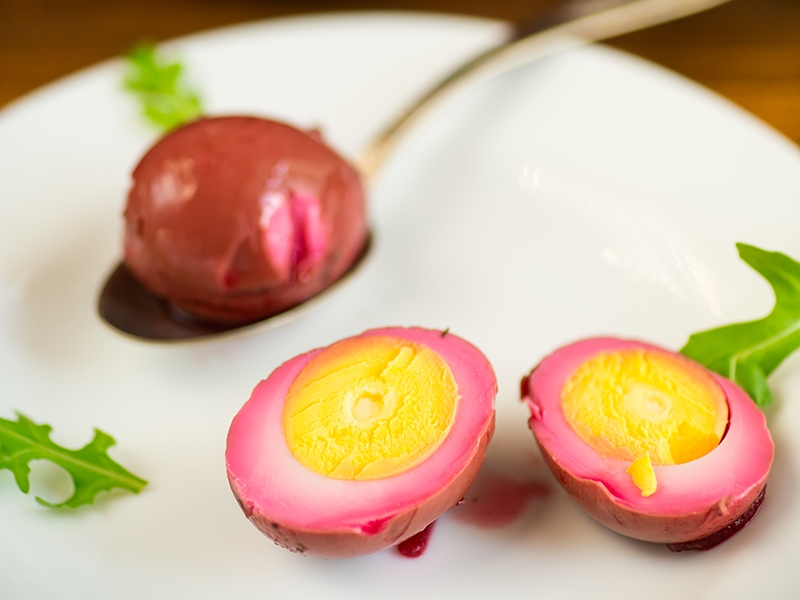
The maximum shelf life of pickled eggs is up to 4 months. When they are already seasoned, the airtight jar of pickled eggs lasts for 3-4 months in the fridge. Therefore, they should be consumed within 4 months for the best taste and safety.
Notice that 4 months is the maximum storage time after the eggs are seasoned. It takes the eggs 1 to 4 weeks, depending on the size of eggs that you choose to season. Small eggs take about 1 to 2 weeks to season, whereas bigger ones require 1 to 2 weeks more.
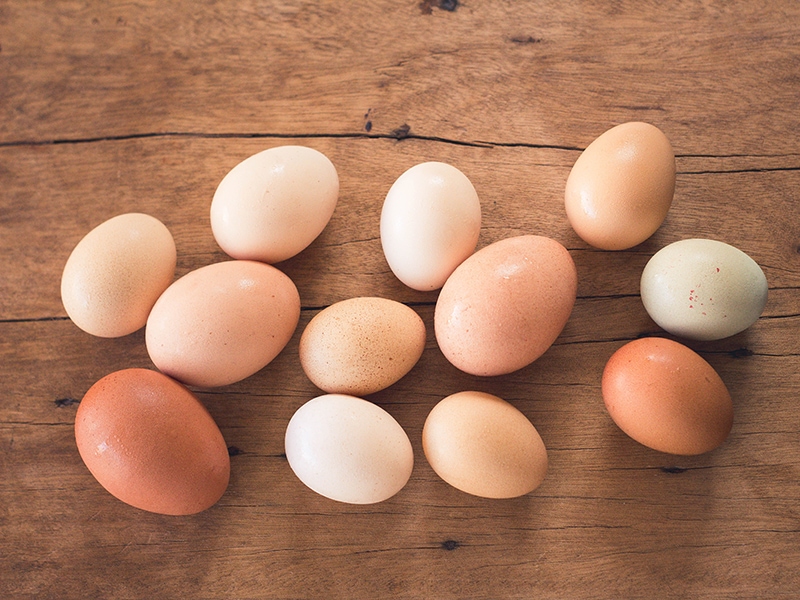
How Long Do Store-Bought Pickled Eggs Last?
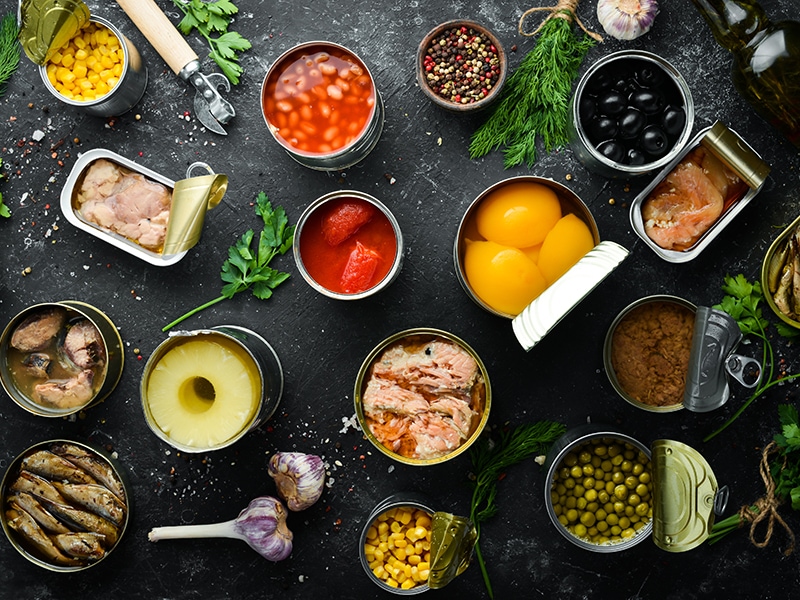
You can find jars of pickled eggs in many stores. They make life better and easier for those who are busy. One good thing about store-bought pickled eggs is that you can be sure of their safe processing.
In addition to food safety, expiry date and storage instructions are also provided on the jars. So, take a look at that information and follow the instructions.
Generally, when you buy a pickled egg jar in a store, it can be kept outside the fridge as long as it is still sealed. However, just as homemade pickled eggs, store-bought ones go bad after a certain time.
For unopened and airtight store-bought pickled egg jars are good to use within 4 months. Once they are opened, you should store them in the fridge as soon as possible and consume them within 7 days.
How Long Do Pickled Quail Eggs Last?
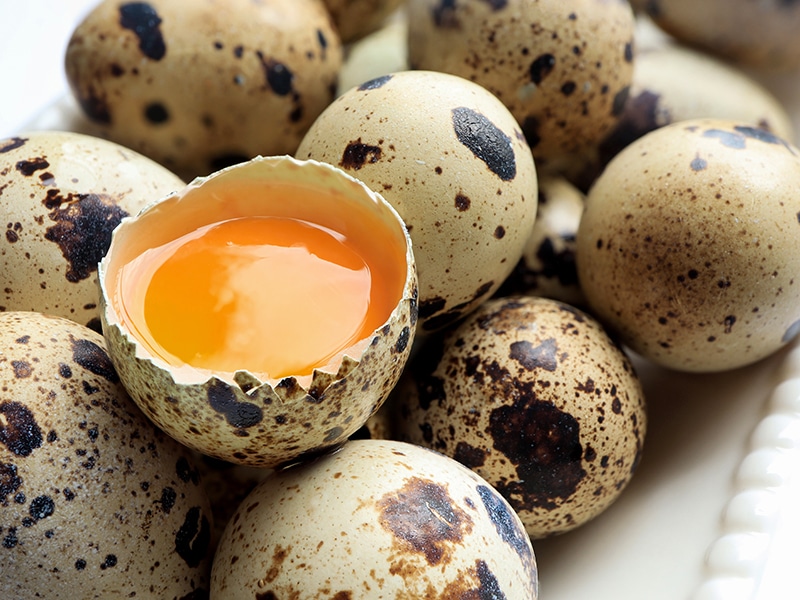
If you prefer quail eggs over chicken eggs, replace them with your favorite egg recipes. The process of pickling quail eggs is similar to that of chicken eggs. However, quail eggs are faster to be seasoned in their pickling solution, which is from 7 to 14 days.
Pickled quail eggs are good for 3 to 4 months when properly stored in the fridge. The best time to consume them falls to the period of around 2 months.
How Long Do Pickled Eggs Last After Opening
Once the pickled egg jar or container is opened, it is advisable to consume them within a week. Importantly, they should be kept cool in the fridge at all times, except when serving.
After openings, the pickled eggs are not protected as much as when they are sealed. Every time they are opened, it allows them to come into contact with air, moisture, and possible germs, which would result in spoilage after some short time.
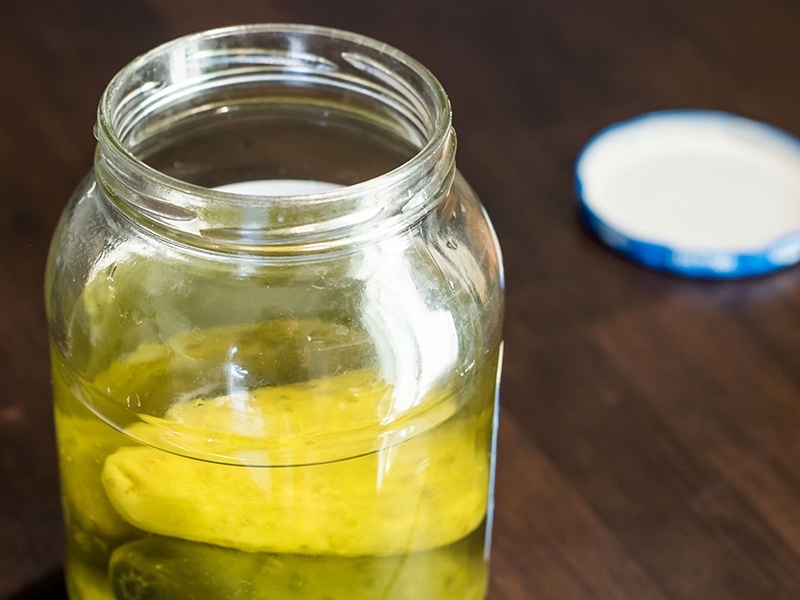
How Long Do Pickled Eggs Last At Room Temperature
When pickled eggs are taken out of the fridge for serving, they should be quickly eaten for safety and freshness’s sake. It isn’t good for them to be at room temperature for more than 2 hours.(1)
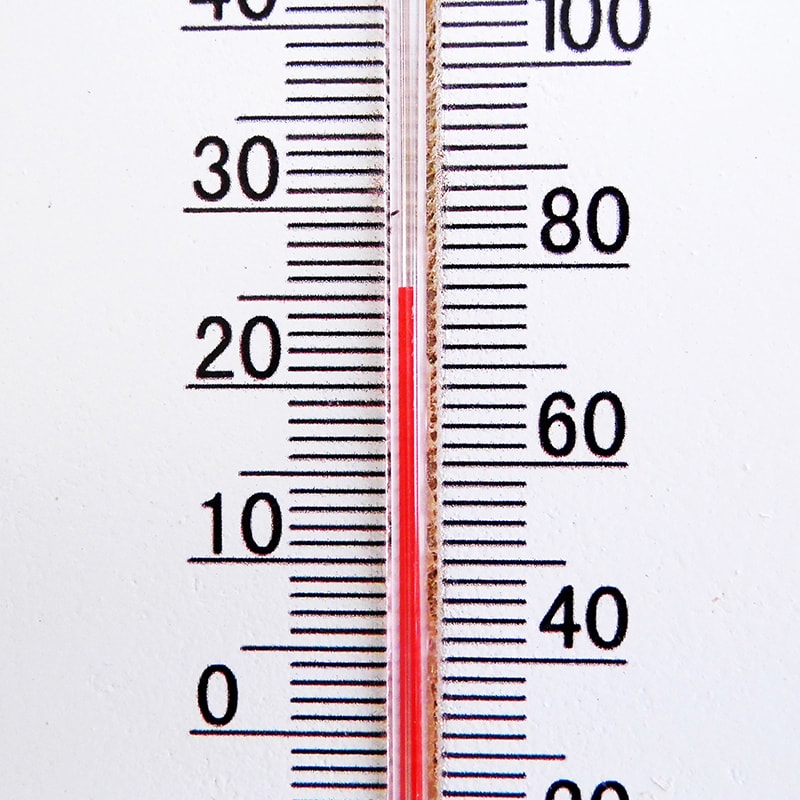
Pickled eggs are easily contaminated by bacteria at temperatures above 40 Fahrenheit. Clostridium botulinum bacteria may grow fast in a warm and moist atmosphere, so eating pickled eggs which have been sitting outside for more than 2 hours may cause botulism.
Look at the table below for comparing the lasting time of different kinds of pickled eggs under different conditions.
How Do You Know If The Pickled Eggs Are Going Bad?
To make sure that you are not eating the old pickled eggs, label the making date and expiry date on your jar is recommended. If you check and see that they have been staying longer than the expiry date, it is better not to consume them, even though they may taste just fine!
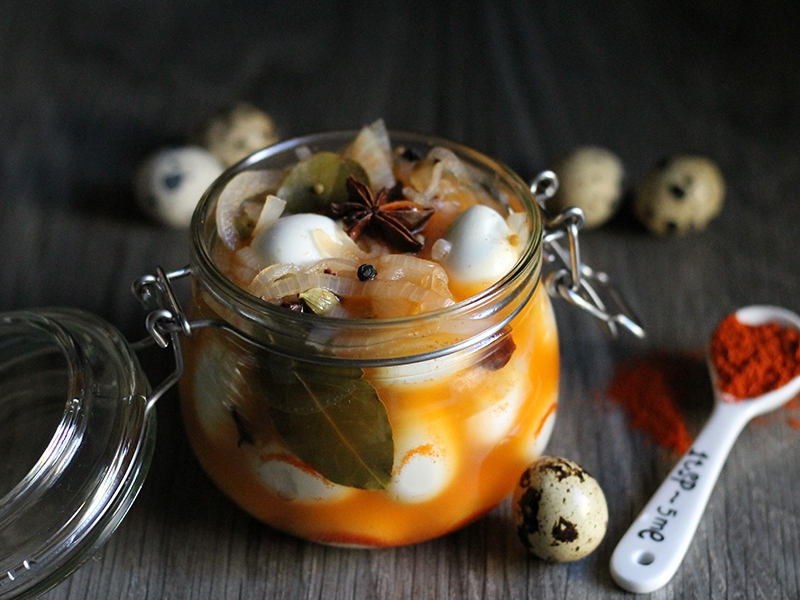
Bad Odor
One clear sign of a spoiled pickled egg is a foul odor. So, if you smell something different, then don’t try to eat it! Because pickled eggs are sitting in a vinegar solution, you can smell the vinegar. However, good pickled eggs do not have an unpleasant, strange odor.
An Off-Taste
An off-taste is another piece of evidence that shows the pickled eggs are going bad. This is when it does not give you the same taste that you always enjoyed before. There are several factors causing this. Bad ingredients, bacterias, and improper storage are some of those.
Change Color
Another sign that can be seen in a spoiled pickled eggs jar is a change of color. When you observe and notice this change, check them first before you serve them.
Bubbles
Furthermore, bubbles appearing on top of the pickling solution might also indicate that the pickled eggs are no longer good. Bubbles throughout the jar are a natural process of fermentation. However, bubbles on the liquid surface are caused by bad bacteria inside.
Bulging Or Water-Leaking Lids
Bulging or water-leaking lids happen when the acid level of the pickling liquid is too high. This creates too much gas, and therefore pressure which makes the lids bulge or leak water. You should not eat the food anymore since they are not safe.
Mold Growth
Good pickled egg jars should look clean and shiny. If you see any sign of mold growth in your jars, you should discard them.
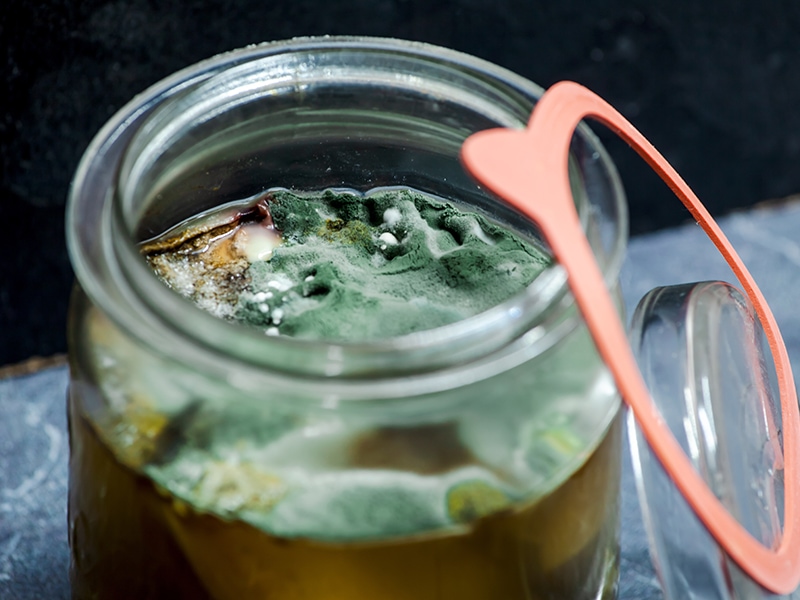
How To Process And Preserve Pickled Eggs Properly?
Making pickled eggs isn’t hard, so if you would like to have your own pickled eggs, try it! There are several simple things that if you pay attention to, you can have fresh and healthy pickled eggs which last for a longer time.
Choose Good, Fresh Eggs
Yes, this is easy. Everyone can do it. Check the date of your eggs to make sure that they are not old. Fresh eggs make your pickled eggs last longer. Furthermore, you can choose small or medium eggs so that all the seasonings can get inside better.
Boil Eggs Long Enough
Make sure that you boil the eggs long enough. They should be cooked thoroughly. Uncooked eggs can go bad when they are pickled.
Watch your time when boiling eggs to get the right kind of boiled eggs that you want.
Clean Carefully Ingredients And Tools
This is very important whenever you pickle anything. Why? Because many bacterias love to grow in a moist, low-oxygen environment like pickling liquid. So, take some time to clean ingredients and tools thoroughly to remove possible germs, chemicals, dirt, etc…
Your egg shells should be clean before you boil them, as well as other food items that your recipe calls for. And, don’t forget to sterilize containers. How do you sterilize jars and lids and such things? Soak them in hot water for about 10 minutes.
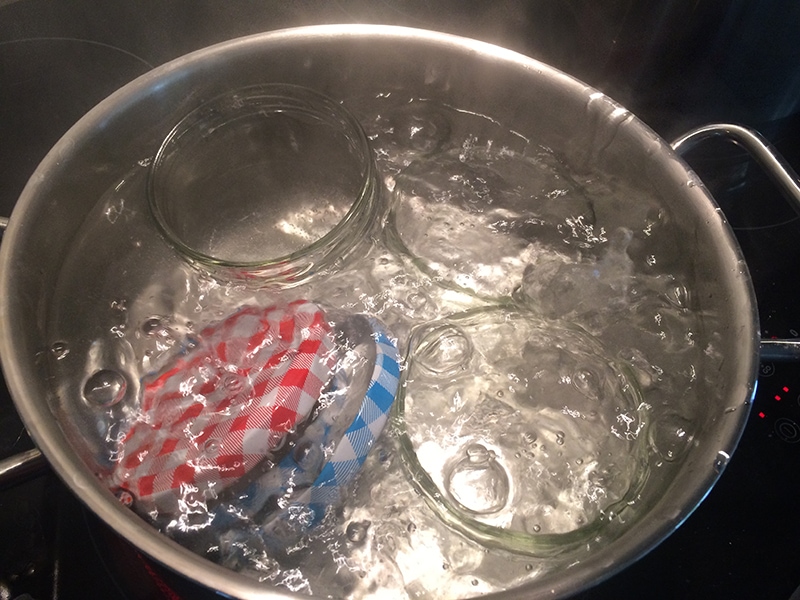
Completely Cover The Eggs By Pickling Solution
Once the hard-boiled eggs are peeled and put in a jar, you need to pour the pickling liquid over the eggs until it completely covers them. Leaving parts of the eggs uncovered and contacting with air causes them to be spoiled.
Seal The Jar Well
Remember to close the jar with its lid and make sure that the jar is sealed well. This would avoid air or moisture outside from penetrating the pickled eggs, which lengthens their shelf life.
Glass Containers Are Better To Contain Pickles
Glass containers like glass jars are undoubtedly good and safe to contain foods, especially pickles. They are airtight, so air or moisture isn’t allowed to get through.
Besides, glass jars do well in keeping the same fragrance of the pickles. And, you can be assured that glass does not cause chemical reactions with the ingredients inside.
Keep The Pickled Eggs Jar Refrigerated
This is one of the key things that you need to remember and follow for your own health’s sake! Keep the pickled egg jar inside the fridge at all times. Of course, you can take the jar out to get the pickled eggs for serving. But, don’t forget to put them back in the fridge right after that.
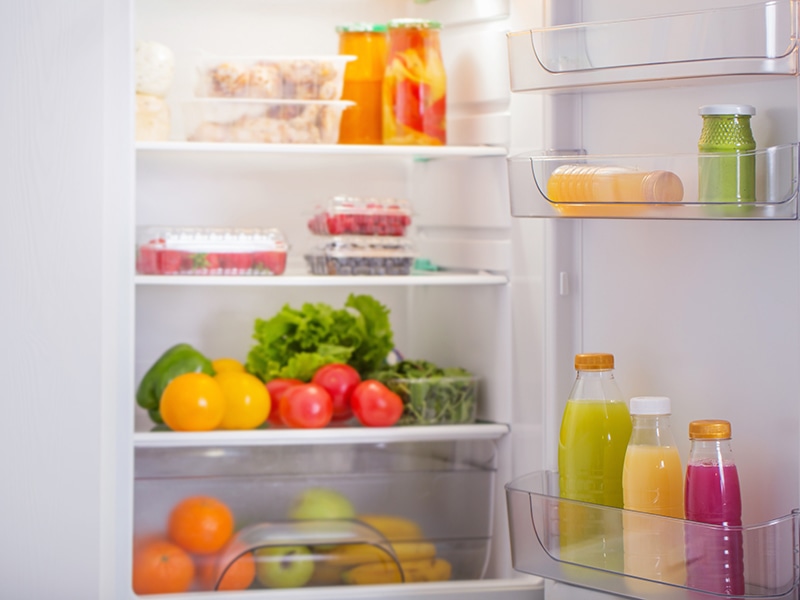
Storing pickled eggs at room temperature is NOT advisable because that could cause botulism, which is a sickness due to Clostridium botulinum bacteria. These bacterias produce toxins in low oxygen levels and heat (room temperature) (2).
Things To Avoid When Making And Storing Pickled Eggs
Pickled eggs are generally good for your health, except for some people with special health deficiencies or illnesses. However, their benefits can turn into harm when they are processed or preserved in the wrong way. So, keep up with these notices to avoid destructive mistakes!
Should Not Store Pickled Eggs At Room Temperature
Even though some people’s recipes allow pickled eggs to remain outside the fridge until the eggs are seasoned, why take the risk of being ill? As has been explained above, room temperature can cause bad bacteria to grow and produce toxins.
Eating botulinum toxin pickled eggs can cause botulism or food poisoning. Therefore, to avoid any possible bad health effects, pickled eggs should not be left at room temperature.
Should Not Pickle Eggs In Metal Containers
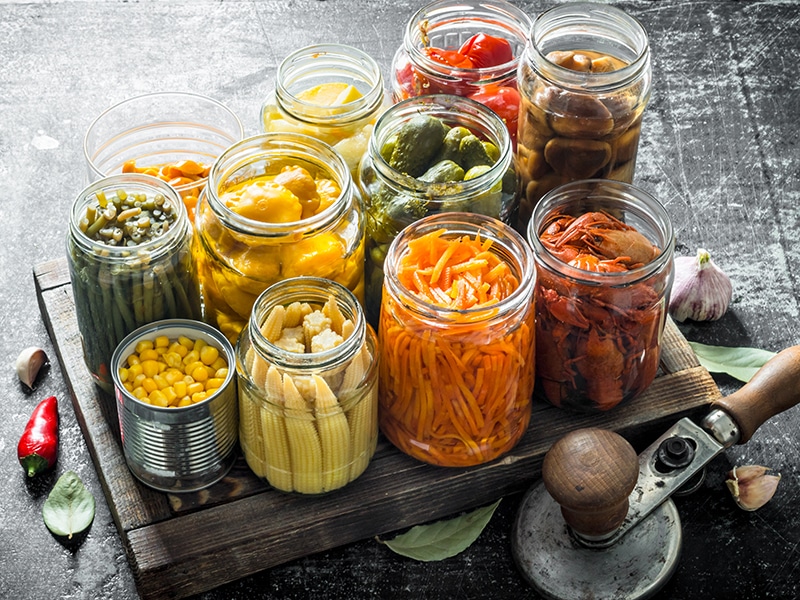
Metal containers are not good for pickled eggs or any kind of pickles. Why not? Because metals are active with acids and salt that are in the pickling liquid. Those chemical reactions result in harmful elements to your health.
In case you can’t find available glass containers, food-grade plastic containers can be acceptable alternatives.
Should Not Poke Holes In The Eggs
Some people think that they can help the seasonings to get into the eggs better and faster by poking holes in the eggs. However, this is not the case, because this actually helps bacteria to go inside the egg yokes easier. So, be patient and let them do their job in sufficient time.
Tips For Quick And Easy Making Pickled Eggs
Love pickled eggs, but don’t have time for making them? Here are some tips for you to quickly and easily have a homemade pickled egg jar.
Reuse Pickle Juice
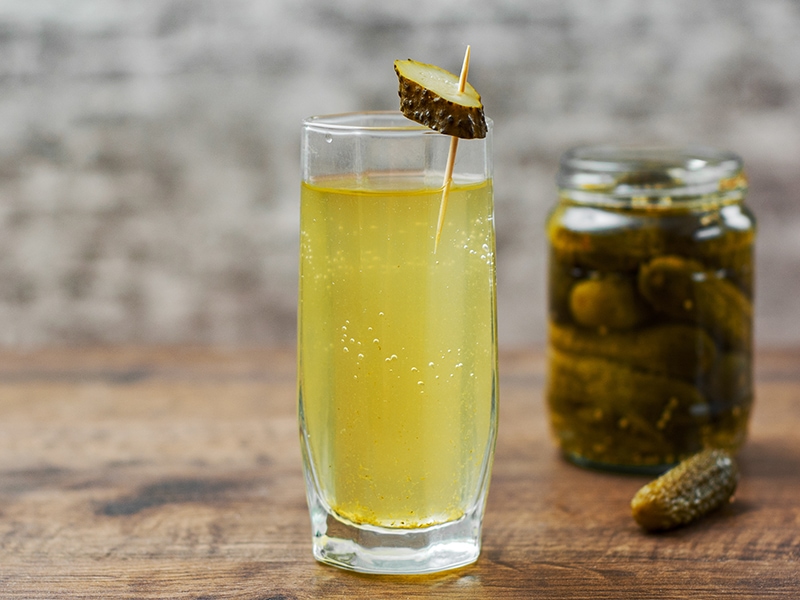
No need to make your own pickling solution. Does it sound great? There are pickle juices that you can reuse to make pickled eggs.
Do you like dill pickles? If yes, then next time, when you buy a jar of dill pickled and once they’ve been consumed you put in the boiled eggs and let them sit in the pickled juice for a few days. Then, they would be ready to be served! So fast, so easy, isn’t it?
The easiest and fastest way to pickle eggs is to recycle pickle juice.
Use Warm Pickling Solution
When making your own pickling liquid, you need to bring your pickling solution to a boil and then lower the heat and let them simmer for 5 to 10 minutes. You may find different instructions regarding when to pour the pickling liquid into the eggs.
Some said that let the solution cool down, then pour them over the eggs. Others guide you to pour them when they are still hot. There is no right or wrong regarding this matter. Both ways can produce great pickled eggs.
However, if you want your pickled eggs to be seasoned faster, then pour the warm pickling liquid into the eggs.
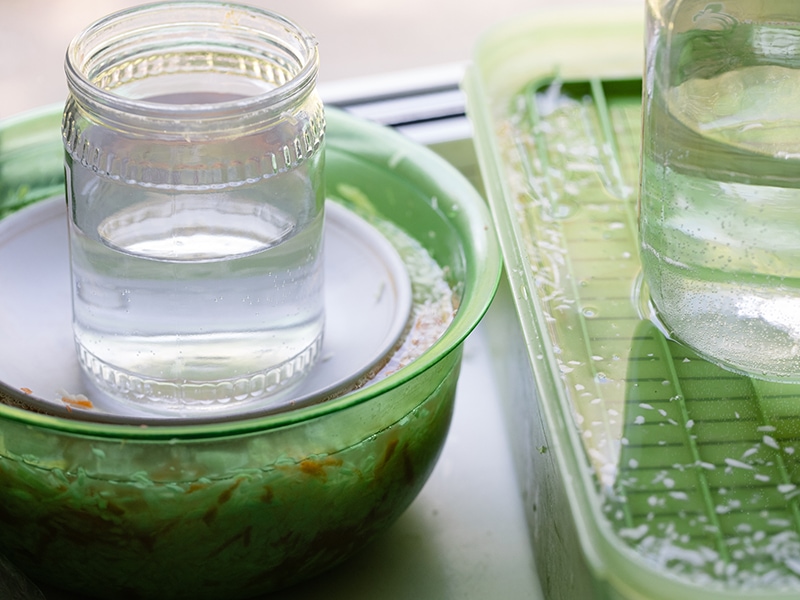
Homemade Pickled Egg Recipe
There are a lot of pickled egg recipes available on the internet. You can choose one that seems good to you. Below is the recipe from Gloria Duggan on her Homemade & Yummy site.
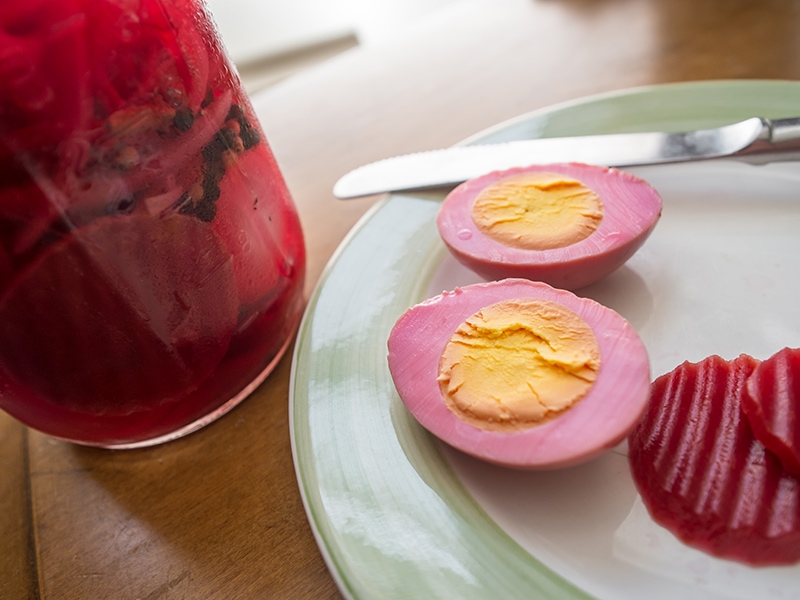
Ingredients
- 12 large eggs
- 4 cups white vinegar
- 1 ½ cup water
- 1 ½ tsp coarse sea salt
- 1 tsp pickling spice
Instructions
Step 1: Making The Pickling Solution
To make a pickling solution, put the vinegar, water, spices, and salt in a pan, and bring them to a boil, then lower the heat and simmer them for about 5 to 10 minutes. Remove them from the heat.
Step 2: Hard Boil The Eggs
Boil the eggs for about 10 – 12 minutes. When they are well cooked, let the eggs sit in cold water so that their shells can be peeled easier. Then, remove their shells.
Step 3: Fill A Sterilized Jar With Eggs And Pickling Liquid
Put the peeled eggs in a fitting sterilized jar, and pour over the pickling solution to completely cover them. Then seal the jar with its lid. Keep the pickled egg jar in the fridge, and wait for 1 to 2 weeks before enjoying them! You can store the sealed jar in the fridge for 3 to 4 months.
Learn to easily make beet, spicy, and turmeric pickled eggs in one presentation.
What Can You Serve Pickled Eggs With?
Pickled eggs are good by themselves. You can enjoy them with a little bit of salt and pepper. They can also be served with toast or crackers. Besides, when boiled eggs are eaten so frequently, pickled eggs will be a great alternative for them in various dishes.
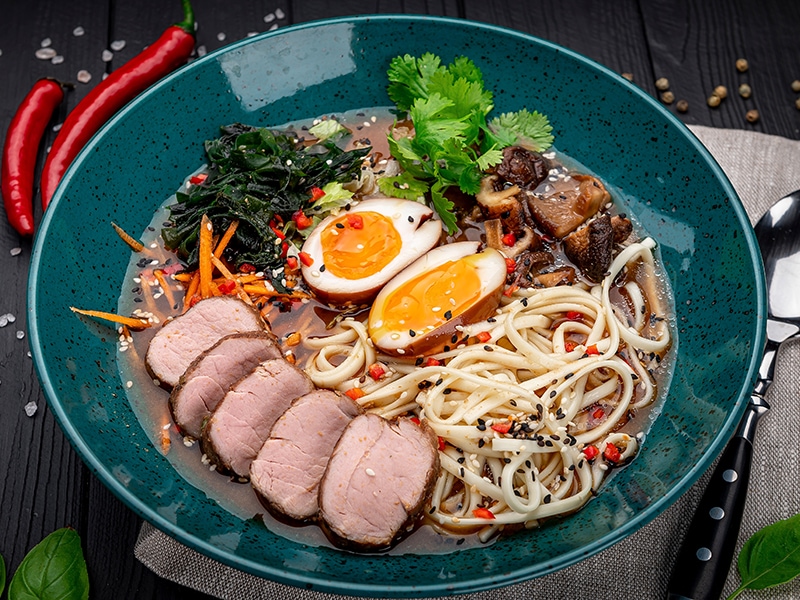
Beet-Pickled Devilled Eggs
Devilled eggs are a classic appetizer that you may have made from time to time. Why don’t you try to alter them with beet-pickled eggs the next time you make them? The colorful, fabulous beet-pickled devilled eggs would be irresistible in your meals.
Pickled Egg Sandwich
What about changing the familiar egg sandwich into a pickled egg sandwich? They are convenient, quick, and nutritious meals. Toast bread, fresh and healthy vegetables such as lettuce and tomato, and pickled egg spread would make such a taste-balancing sandwich.
Pickled Egg Salad
Have you tried to make pickled egg salad? It is terrific for a lunch meal. Instead of the normal boiled eggs, you can simply use pickled eggs to replace them to create a rich, unique twist.
Add a dozen ways of serving pickled eggs to your daily menu by watching this guide.
FAQs
There are so many frequently asked questions related to pickled eggs. Learn about them now as each question is solved below.
Keep The Mentioned Safety Tips In Mind
Pickled foods are a great appetite booster. However, pickled vegetables or fruits in general, and pickled eggs particularly, when they are not properly made or stored, can lead to food contamination.
Therefore, there are Dos and Don’ts stated in this article that you should be conscious of to safely pickle eggs. Keeping these tips in mind would ensure food safety and health benefits.
Well, have your questions been answered? If you have gotten helpful ideas from this article, feel free to share them with others. And, should you have more questions related to pickled eggs or other topics, don’t hesitate to let me know by leaving your comments below!
References
1. National Center for Home Food Preservation: How do I? pickle (no date) National Center for Home Food Preservation | How Do I? Pickle.
2. Botulism (2022) Wikipedia. Wikimedia Foundation.

